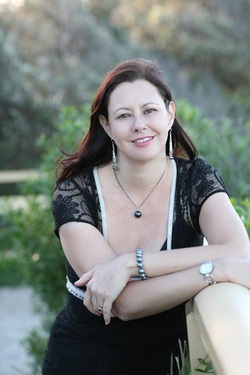
There was just too much information in this workshop to share in one blog post so I will break it up into parts.
I try to attend the children's literature festival and at least two writing workshops each year and always come away riding a wave of enthusiasm and new-found knowledge. This recharge of inspiration inevitably improves my determination, my writing or at the very least my writing habits. I’m not meaning to take anything away from the quality of any other workshops I have attended but this one seemed to strike a chord with me.
The Workshop
After each participant in the workshop shared what they like to read, a little about themselves and their current writing project, Kate wrote two words up on the whiteboard.
FOCUS (One project at a time)
and
DISCIPLINE (See a project through to the end)
Several participants had three or four projects on the go and some had a bunch of half finished projects they had moved on from. I have to admit, I am one of the latter although more from a lack of planning than from a lack of discipline.
The other thing Kate stressed at this stage was the need to set a realistic weekly word count, and stick to it.
My take on the definition of fantasy writing – across all the genres – is:
Fantasy stories draw upon fairytale and myth or have a quality of strangeness and wonder.
The genres covered included;
High (or Heroic) Fantasy
· Imaginary world
· Serious tone
· Epic in scope – grand struggle – good v’s evil
· Hero’s journey
· Often multiple volumes
· Often involve magic rings/swords, mythical creatures
· Happy ending.
Adventure Fantasy (used to be called Sword and Sorcery)
· The journey is important
· Heroes are often warriors, thieves, wizards, pirates or charming ne’re-do-wells
· Adventures usually end with a happy return to home.
Historical Fantasy
· Set in our world during a true historical time period
· Will include elements of fantasy to some degree
o Mythical creature
o Herbal Lore
o Persecution of witches or those with ESP abilities
o Fortune tellers
o Time Travel
o Duel linked time periods
Fairy Tale Retelling
· Either retells a well known fairy tale, or
· Deals with personal transformation
· Quite often YA
Dark Fantasy
· Focus on stories with elements of horror in a fantasy setting
· Fantastic creatures – evil to the core
· Evil appears early, usually after a brief opening scene of calm
· Evil intensifies as the story continues
Romantic Fantasy
· Romance – growing love
· Usually a love triangle
· Fantasy, magic, mystery elements or setting
· Blending the two genres together
Urban Fantasy (trend appears to be over)
· Modern real world setting
· Fantasy elements intrude into the real world
Magic Realism
· Magic happens in the midst of everyday events
· Subtle, the line between reality and fantasy is blurred.
One genre Kate did not touch on is alternate history. Some people believe this category was invented by writers who wanted to write historical fantasy but were too lazy to research all historical details. Any blunders can then be attributed to the “Alternate” part of the genre.
The second part of the workshop looked at The Writer’s Tool Box
· Character - Plot - Setting
· Structure
· The writing style – language, word choice, sentence structure
· Parts of novel – Action, Dialogue, Description
· Pacing
· Peaks and Troughs - Light and Shadow
· Surprise and Suspense
I will expand on these topics in part 2 of this blog post.

 RSS Feed
RSS Feed